
Umar Memon
Making Tax Digital: Navigating the Complexities and Delays in the UK’s Tax System Transformation
Understanding the Challenges of Making Tax Digital: A Detailed Analysis
Since being announced back in 2015, the Making Tax Digital (MTD) initiative has been mired in delays and complications, casting a shadow over its intended benefits for taxpayers. MTD’s basic premise is to digitise the UK’s taxes, resulting in a simple, modern and straightforward system that benefits HMRC and the taxpayer alike.
Initially heralded as a transformative step towards a more efficient tax system, MTD’s journey has been anything but smooth. Several revisions and delays have raised concerns, particularly in the income tax self-assessment regime. The turnover threshold for mandatory inclusion has been set at £30,000 for the foreseeable future, but this does little to assuage wider concerns around affordability and feasibility.
Public Accounts Committee Report: A Critical Evaluation of MTD
The Public Accounts Committee (PAC), a cross-party parliamentary group, recently issued a scathing report on MTD. It highlighted significant areas for improvement in HMRC’s planning, design, and implementation approach. Dame Meg Hillier, chair of the committee, underscored the irony of a digital tax program that, after seven years and £640 million in investment, seems to complicate rather than simplify taxation.
The PAC report paints a troubling picture of increased taxpayer burdens and costs, starkly contrasting MTD’s initial promise of reducing them. Taxpayers are now expected to shoulder the costs of third-party software and engage in more frequent tax filing. The report also criticises HMRC for underplaying the additional costs MTD imposes, citing significant upfront and transitional expenses.
The Costly Reality for Taxpayers: Burdens Beyond Expectations
HMRC’s approach, particularly amidst a cost of living crisis, has been described as insensitive and lacking transparency. With over £2 billion in excluded transitional costs and a surge in the overall project cost from £222 million to £1.3 billion, there is a growing disconnect between MTD’s objectives and its execution.
The program’s delays and the uncertainty surrounding its design and implementation timelines are worrying. Given the current state of affairs, HMRC’s target of a comprehensive pilot by April 2025 appears ambitious. This uncertainty extends to safeguarding data security for taxpayers with multiple agents and providing a free service for those with simpler tax situations.
Future Projections: Balancing Ambition with Practical Realities
While HMRC maintains that MTD will eventually yield substantial tax revenue, the escalating costs and dwindling stakeholder confidence tell a different story. Dame Hillier emphasised the need for a realistic plan and timetable, stressing the importance of confidence, honesty, and transparency in the tax system.
In conclusion, the MTD initiative, while still possessing potential benefits, has been significantly hampered by delays and mismanagement, impacting taxpayer confidence and imposing additional burdens.
For those seeking further insight or assistance in navigating these changes, our Jack Ross team is available for consultation at 0161 832 4451, or you can fill out the contact form below. We will contact you promptly, offering expert guidance and support in these challenging times.
Request a call back
Let us know when you would like us to call you back by filling in this form:
Latest News

Making Tax Digital 2023: MPs Criticise Delays and Complexity
Explore the challenges and impacts of the UK’s Making Tax Digital initiative, including delays and the cost burden on taxpayers.

Making Tax Digital: Small Business Review
Making Tax Digital Small Business Review 2023: Understanding the Basics and Preparing for Change Introduction to Making Tax Digital (MTD) Since 1948, Jack Ross Chartered

Making Tax Digital: The Rising Costs and Challenges
Making Tax Digital: The Rising Costs and Challenges Introduction Making Tax Digital (MTD), the ambitious initiative by HM Revenue & Customs (HMRC) to digitise the
Our 5 Star Reviews






